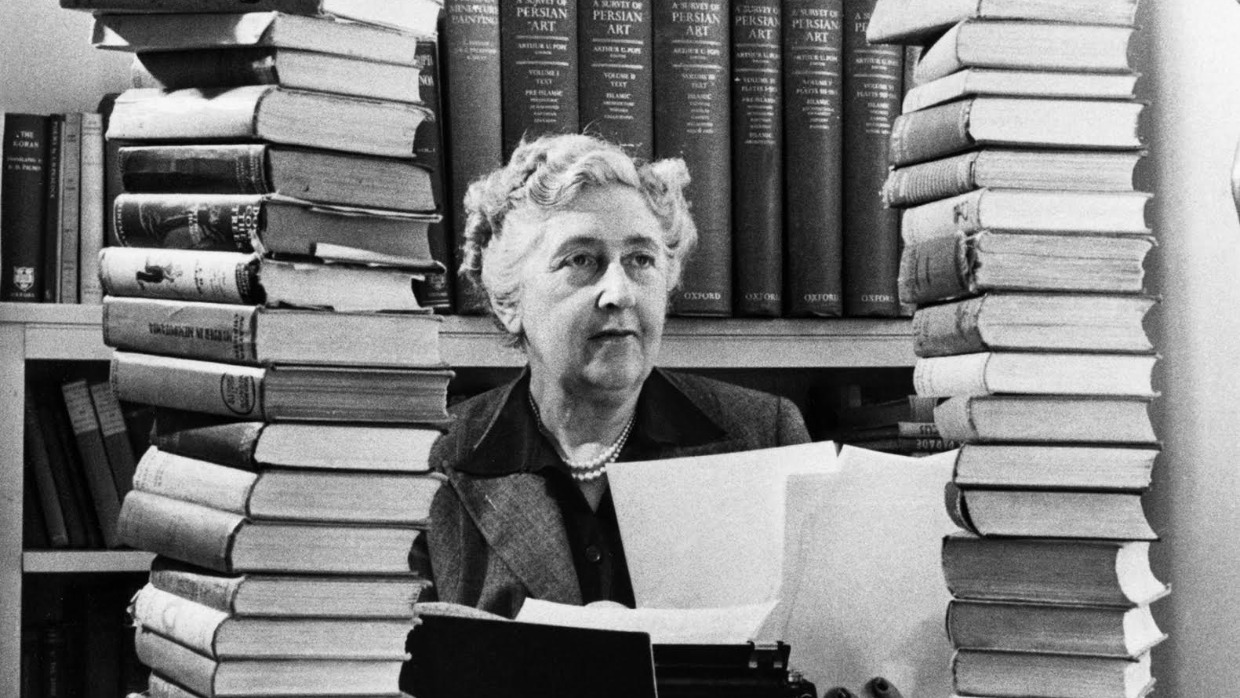 Vampire Weekend's Surprising Jewish Stories
Vampire Weekend's Surprising Jewish Stories


5 min read
Would we be better served by leaving some anti-Jewish books alone?
Some books by Agatha Christie, the bestselling author of all time, are getting a makeover.
Christie’s murder mysteries, written between 1920 and 1976, are being reissued by HarperCollins with a number of changes to reflect modern sensibilities, playing down the author’s prejudices, including her offensive references to Jews.
HarperCollins employed “sensitivity readers” to identify problematic passages. One example comes from Christie’s very first novel The Mysterious Affair at Styles, which introduced her famous detective character, Hercule Poirot. Poirot describes an unsavory character as “a Jew, of course.” This sentence has now been removed. Other passages that HarperCollins is removing from the author’s oeuvre are references to people as “natives” (replaced with “locals”), and demeaning descriptions of Black and Asian characters.
Agatha Christie isn’t the only author whose work is being reissued in a more “sensitive” form by publishers today.
Ian Fleming’s James Bond books are being reissued this month to celebrate the 70th anniversary of Casino Royale, the first book that featured the famous spy. They’re removing the sometimes shockingly racist language that Fleming employed a generation ago. Popular children’s book author R. L. Stine, whose Goosebumps series is the second most widely-selling children’s series after Harry Potter, recently complained that his publisher, Scholastic, has made over 100 changes to his work in new editions without informing him, altering “plump” to “cheerful,” “crazy” to “silly,” and “African American” to having “brown skin.”
Puffin, which publishes Roald Dahl, has toned down some of that author’s antisemitism and general mean-spiritedness in new editions. Descriptions of characters as “fat” and “ugly” were dropped and gender-neutral terms have replaced gendered words (Charlie and the Chocolate Factory’s “Oompa Loompas” used to be described as “small men,” but are now “small people.”) Given Roald Dahl’s open and self-professed antisemitism, Puffin even seemed to find anti-Jewish sentiment where a casual reader (or this reader at least) saw none: in The Witches, the evil witches are no longer described as having big noses - that having been deemed an antisemitic detail.
Agatha Christie expressed remorse for her anti-Jewish content. Roald Dahl did the opposite. That makes a difference.
Some of today’s eagerness to edit out offensive content from beloved books goes too far. What’s next? The Bell-Ringer of Notre Dame or Of Mice and People? Yet much of the offensive language publishers today object to using is genuinely painful, representing years of vicious hatred against Jews and other groups. Should it be removed?
In many ways, Agatha Christie was a product of her class and time. Born in 1890, she grew up in a wealthy family in the English countryside, where horrible anti-Jewish and racist slurs were widely accepted. Christie eagerly adopted them, and employed them with alacrity in her early books, which are littered with grotesque references to Jews loving money and having huge noses. Christie also deeply offended Italian, Black, Catholic, Asian, and other readers with her frequent use of offensive, denigrating terms for those groups, as well.
As her popularity grew, her copious racist and antisemitic asides began to cause friction with her increasingly international body of fans.
In 1947, the Anti-Defamation League was so fed up with Christie’s offensiveness that it wrote to her literary agent, taking issue with that antisemitism and racism in Christie’s books. Christie consented to her American publishers editing out her offensive passages. At around that time, Christie seemed to undergo a change, as well.
“As her circle of acquaintances widened and she grew to understand what Nazism really meant for Jewish people, Christie abandoned her knee-jerk anti-Semitism,” contends Gillian Gill, author of Agatha Christie: The Woman and Her Mysteries (Touchstone: 1990). She began to back away from her seeming contempt for Jews and anyone else who didn’t look exactly like her. Her later books contain fewer offensive asides, and after the Holocaust, she allowed her American publishers to change antisemitic comments in her novels.
If Agatha Christie were alive today, perhaps she would welcome the changes her publishers are making in her work. Since she had listened to criticism and decided to temper her offensive wording, it’s likely she would embrace the help her publishers are giving to her books today. These changes honor the decisions she made in her lifetime.
But when it comes to some of the other authors whose work is being altered, perhaps we’d be better served by leaving their offensive remarks alone. These works help us understand the antisemitism of the past and give us a better sense of where anti-Jewish feelings that flourish today have come from.
Take Roald Dahl. Whereas Agatha Christie seemed to move away from antisemitism throughout her life, Dahl increasingly embraced it. By 1990, just months before he died, he bashed Jews in an interview and told a journalist, “I’ve become antisemitic.” Dahl expressed no remorse. Let readers see for themselves his odious anti-Jewish statements as he wrote them, and how he helped to promote animosity to Jews that we are battling today.
In his masterful book about British antisemitism, Trials of the Diaspora, Anthony Julius explores the horrendous antisemitism in many of the greatest works in English literature. From The Canterbury Tales to The Merchant of Venice, Oliver Twist, and countless other works, some of the most important works in English literature have treated Jews with disdain - and still do. Reading these works can be painful, but it’s necessary if we want to understand where contemporary Jew-hatred comes from, and if we want to fully battle antisemitism and other forms of racism today.
